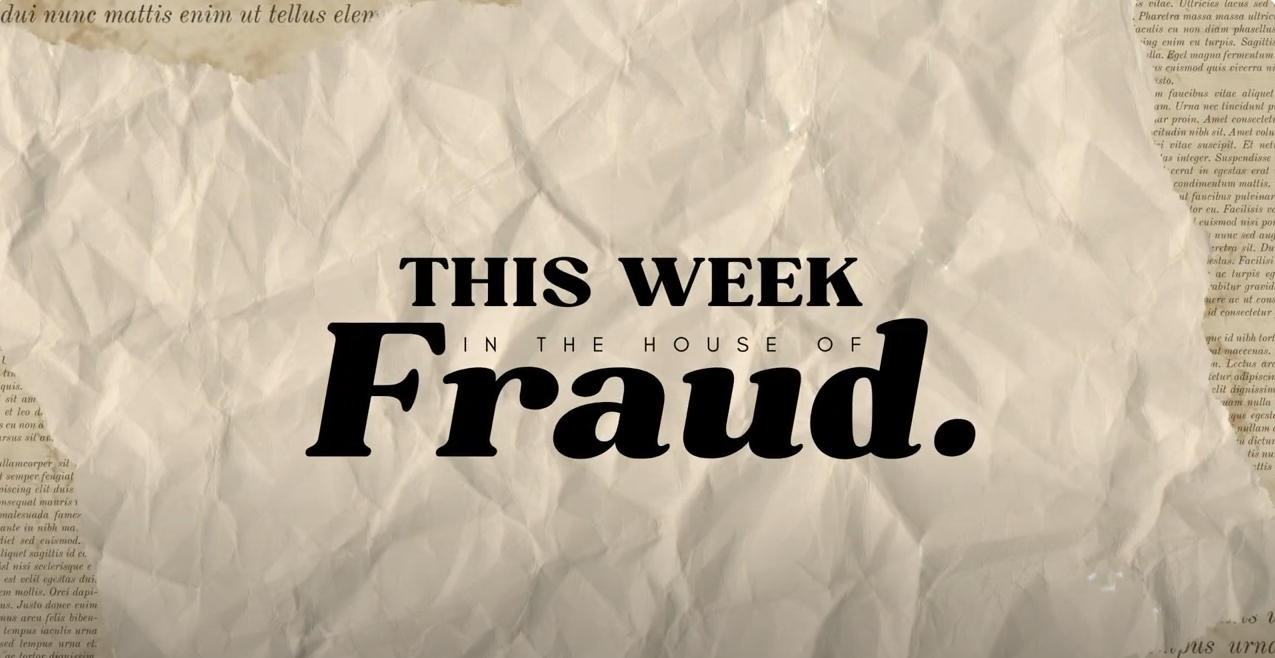Check Fraud Highlighted in House of Fraud Podcast Pilot Episode
- Fraudsters use fake LLCs to perpetrate schemes
- Even careful consumers can be fooled
- Consortiums are vitally important to combat this type of tactic
A few weeks ago, we talked about the ease with which fraudsters open LLCs in order add an additional layer of "realism" to their schemes. While setting up a fake business is not new, fraudsters are shifting focus from consumers to businesses.
This is a subject addressed by the House of Fraud, which describes itself as "an invite-only community for fraud experts" wherein you can "build meaningful relationships with experts who understand your specific challenges. No more struggling alone as you navigate your career."
You can join the House of Fraud at this link.
In their inaugural YouTube video, hosts Jordan and Brian take some time to explore how LLCs can be used by fraudsters -- but not before assuring us that even persons deeply involved in the business of fraud identification can be taken in:
Just this week Julie Ferguson, our CEO, said that one caught her, too -- she thought she was buying something off of Facebook and it ended up redirecting her to one of those sites where they clone everything put up an item for cheaper than it's supposed to be and they got her information.
Later, the discussion turns to creation of fake LLCs in order to fool victims:
This person said that they had another person create a fake business with the same name in their same State and then has begun writing checks and depositing checks off of their own business as if they were their business account.
Now, I've asked for a little more information -- like, how did they get the number? How are these checks coming from your own business account? Are they just pretending and the people are now calling you?
This is a new one that I thought was really interesting -- especially for me because I have recently registered a business and it was a little easier than I had expected it to be -- just had to pay the fee and basically not have another business that existed. However, I did switch from Fraud Boxer as a DBA to Fraud Boxer, Inc,. which was a very small change that I think most people wouldn't really look at, and I think that most banks would probably allow a check from Fraud Boxer to be deposited into the Fraud Boxer, Inc. account without even worrying about it -- so if a business name was similar or close enough, it might actually work.
Understanding the Fraud Scheme
As noted in the video, "if the business name is similar or close enough, it might actually work." And, unfortunately, this is true. OrboGraph weighed in on the matter in their comments section to explain the fraud scheme in detail.
Fraudsters are adapting to more businesses utilizing payee positive pay systems through their financial institutions. What occurs is that fraudsters will get a business check and, rather than altering the payee, they are setting up fake businesses for a small fee and establishing business checking accounts -- typically with a stolen identity as well. They will deposit the stolen check into newly established business accounts and most payee positive pay systems will verify the payment -- as the name of the payee is "close enough" to the payee on the issuer file.
From there, the fraudster has a few options -- the easiest and simplest is to extract the funds. However, many fraudsters are taking it a step further. As we know, it will take at least a month for the actual vendor to reach out to the business about the payment, along with additional months for the business and financial institution investigation to realize what occurred. The fraudsters will take advantage of this by writing checks from the newly established business accounts and depositing them into drop accounts -- leveraging the funds availability window to extract the funds from the newly established business account and the drop accounts.
This is where consortiums become vitally important -- not only to verify funds availability, but also corroborate newly established accounts. Financial institutions can hold check payments in order to ensure that the account is legitimate. Additionally, financial institutions need to watch newly established accounts closely to ensure that their transactional activities are not fraudulent.
Remember, fraudsters are creative and adaptive -- until checks become more secure, they will find ways to exploit this payment channel.
